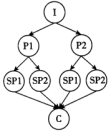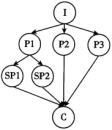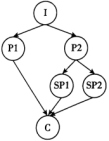We are all faced with challenges in our lives. Most people have a hard time accepting and dealing with them. The truth is that you will have to deal with difficult problems throughout your life. Here are some tips on how to deal with everyday challenges.
1. Don’t compare your lifestyle with others. It is really difficult not to compare ourselves with others; however, the more often we do that, the more dissatisfied we will feel. There will be people that may have accomplished more than you. The key thing to remember is that you create your own story and success in life.
2. Don’t blame others. Many people make a habit of blaming others for all their problems. They fail to take full responsibility for the decisions they have made in life. The more you blame others for the challenges you are faced with, the more you will make people dislike you and not want to be around you. The first thing you want to do when faced with a personal challenge is not to start pointing fingers at others.
3. Accept changes in your life. You will have to deal with changes in life all the time. Many people don’t like change because it gets them outside of their comfort zone. You may be unhappy or happy at certain times; however, you have to realize that those two feelings will not last forever. You have to always train your mind to be at peace despite the emotional state you are experiencing.
4. Don’t think too much. When you think too much about an event that happened, you will start to judge everything and everyone. When you think too much, you will have a very hard time accepting reality and you will think that something is not right. Thinking too much can also lead you not to take action on your goal. This can make you really sad in the long run.
Life is full of its ups and downs. With the right mindset and practice, you will be able to overcome them every time and grow in the process!
1. What is the key thing to remember if you want to stop comparing your lifestyle with others?2. What will happen if you blame others for the challenges you are faced with?
3. Why do many people dislike change?
4. What are the other ways to deal with challenges in your life? (In about 40 words)
2 . Eradajere Oleita thinks she may have a partial solution to two of her country’s problems: garbage and poverty (贫穷). It’s called the Chip Bag Project. The 26-year-old student and environmentalist from Detroit is asking a favor of local snack lovers: Rather than throw your empty chip bags into the bin, donate them so she can turn them into sleeping bags for the homeless.
Chip waters drop off their empty bags from Doritos. Lays. and other favorites at two locations in Detroit: a print shop and a clothing store, where Oleita and her volunteer helpers collect them. After they clean the chip bags in soapy hot water, they slice them open, lay them flat, and iron them together. They use padding (衬垫) and liners (衬里) from old coats to line the insides.
It takes about four hours to sew a sleeping bag and each takes around 150 to 300 chip bags depending on whether they’re single-serve or family size. The result is a sleeping bag that is “waterproof lightweight and easy to carry around”. Oleita told the Detroit News.
Since its start in 2020, the Chip Bag Project has collected more than 800,000 chip bags and, as of last December, created 110 sleeping bags. Sure, it would be simpler to raise the money to buy new sleeping bags. But that’s only half the goal for Oleita — whose family moved to the United States from Nigeria a decade ago with the hope of attaining a better life — and her fellow volunteers. “We are devoted to making an impact not only socially, but environmentally,” she says.
And, of course, there’s the symbolism of rescuing bags that would otherwise land in the trash and using them to help the homeless. It’s a powerful reminder that environmental problem and poverty often go hand in hand. As Oleita told hourdetroit.com, “I think it’s time to show connections between all of these issues.”
1. What did Oleita ask the snack lovers to do with their empty chip bags?| A.To turn them into sleeping bags. | B.To give them away to her. |
| C.To throw them into the bin. | D.To donate them to the homeless directly. |
| A. Its size is adjustable. | B.It is only made of old coats. |
| C.It has the function of heating | D. It is portable. |
| A.Hardworking and loyal. | B.Talented and social. |
| C.Responsible and creative. | D.Selfless and modest. |
A seed expert who brought high-quality vegetable seeds to many countries, was awarded the 2019 World Food Prize. Simon Groot of the Netherlands is credited with introducing high-quality, disease-resistance vegetable seeds to more than 60 countries including the Philippines, Thailand and Indonesia.
He began his search to create better vegetable seeds to help farmers in Southeast Asia in 1981. Sixteen years earlier, he had made his first trip to Indonesia. There, Groot learned that vegetable seeds which were developed for the climate of Europe, did poorly when planted in the hot tropics (热带). He thought there was a great possibility to introduce hybrid (杂交的) vegetables to the area. The area lacked vegetable seed developers who were trying to create hybrids for the local climate.
“I noticed the seed quality in that part of world was so much below our standards and below achievable standards. I could not stand that the farmers there did not have better seeds.” Said Groot.
At that time, farmers in Southeast Asia usually saved seeds from season to season. That was because the seeds available for sale were often old. Those seeds were usually from Europe or North America and did not grow well in their -tropical climate. This meant that the farmers ended up with smaller crops, and lower quality that changed greatly from season to season. The plant also could easily become infected with diseases.
Groot partnered with seed trade r Benito Domingo of the Philippines. They put together a team of seed researchers and growers from Wageninge University. Within a few years, they developed a hybrid bitter gourd that sold successfully. Then they adapted a tomato plant, followed by eggplants, pumpkins and leafy vegetables.
The early success led to the start of the East-West Seed Company, which now has more than 970 improved seeds of 60 vegetable crops. Over the past 40 years, the discoveries have led to the creation of a tropical vegetable seed industry aimed at small farmers. The tropical seeds are now spreading into Asia, Africa and Latin America.
The award was announced during a ceremony at the U. S. Department of State hosted by Secretary of State Mike Pompeo. “The remarkable improvements made in these tropical vegetable seeds helped small farmers in developing nations produce more food and importantly get more income for themselves and their families,” Pompeo said. He added that these seeds fight hunger and help increase economic growth.
1. Who is Simon Groot? (no more than 4 words)2. Why was Groot awarded? (no more than 6 words)
3. What caused lower incomes from crops in Southeast Asia in the past? (no more than 3 words)
4. How many continents are the tropical seeds now spreading into? (no more than 2 words)
5. Why does the author mention the Pompeo’s statement at last? (no more than 5words)
4 . Lessons in the Lost Art of Listening
When was the last time you listened to someone? And when was the last time someone really listened to you? I once asked people what it meant to be a good listener. The typical response was a blank stare.
Of course, technology plays a role. People find phone calls interrupting them, preferring text or wordless emoji. Besides, schools and colleges rarely offer classes or activities that teach careful listening. You can join clubs to perfect your public speaking. but who attempts to achieve excellence in listening? The loud unpleasant mixture of sounds of modern life also stops us from listening.
Generally, listening goes beyond simply hearing what people say. It also involves paying attention to how they say it and what they do while they are saying it, in what context, and how what they say is related to you. It’s not about merely holding your peace while someone else holds forth. Quite the opposite. A lot of listening has to do with how you respond — the degree to which you facilitate the clear expression of another person’s thoughts and, in the process, have a clear mind of your own.
Good listeners ask good questions. They engage in exploring the topic, not to divert attention. There are curious questions like “Wouldn’t you agree..” or “Don’t you think..” These questions have strong tendencies. They will greatly influence the other person to change his or her view. And you’d better stay away from some personal questions like “What do you do for a living?” or “What part of town do you live in?” Just try to find out what excites people. Ask about the last movie they saw or for the story behind a piece of jewelry they’re wearing. Also good are expansive questions, such as, “If you could spend a month, where would you go?” Research indicates that when people who don’t know each other well ask each other this type of question, they feel more connected than if they spend time together achieving a task.
Because our brain can think a lot faster than people can talk, be careful with the tendency to take mental side trips when you are listening. Smart people’s attention is easily taken away by their own runaway thoughts. They may also assume they already know what the other person is going to say.
The reward of good listening will certainly be more interesting conversations. Researchers have found that attentive listeners receive more information from speakers, even when they don’t ask any questions. We are, each of us, the sum of what we attend to in life. The gentle voice of a mother and the criticism of a boss both ultimately form and shape us. And to listen poorly, selectively or not at all limits your understanding of the world and prevents you from becoming the best you can be.
1. What does Paragraph 3 mainly talk about?.| A.Why the art of listening gets lost by itself. |
| B.Why effective methods are used in listening. |
| C.How people make themselves well understood. |
| D.How people can reclaim the lost art of listening. |
| A.Avoid being absent-minded. |
| B.Come up with curious questions. |
| C.Focus on the speaker’s personal information. |
| D.Try to find common interests with the speaker. |
| A.Listening and speaking deserve equal attention. |
| B.Good listeners maximize the benefits for themselves. |
| C.Bad listening ultimately contributes to people’s failure. |
| D.Listeners’ clear mind facilitates speakers’ expression of thoughts. |
5 . In today’s world, online social media has become more powerful and the most destructive thing over worldwide, although with time all generations have come to accept the changes social network has brought about, teenagers and young adults are the most enthusiastic users of these sites. According to various research studies in the field of online social networks it has been revealed that these sites are impacting the lives of the youth greatly. When using these sites such as Twitter, Facebook or Myspace, there are both positive and negative effects on the youth.
Firstly, social media helps the youth and any other user updated with what is happening around the world, and helps the teenagers stay connected and interact with each other even if they are many miles apart. This strengthens their relationship. Even if they finished school and moved to different locations, they stay connected and update one another.
In addition, social media sites have provided a platform whereby the youth can create groups and pages based on their Common discipline and end up building connections and opportunities for their respective careers by updating different topics to discuss. Youth who have been interviewed say that social media has become their lifestyle and it makes their lives easier and more efficient.
While on the one hand social network sites seem to bring people together and stay connected, on the other hand it causes many physical and mental health problems such as eyes infection, back problems, etc. Other negative effects of social networking various people suggested included encouraging poor spelling and grammar, exposing underage to online predators(捕食者), allowing spread of misinformation that is seen as fact, decreasing productivity as those who are supposed to be working spend time in the sites to chat, providing a perfect platform for cyberbullying and providing details that increase risks of identity theft.
“The more social media we have, the more we think were connecting, yet we are really disconnecting from each other.” One researcher said.
In conclusion, social networking clearly portrays both positive and negative effects on the youth. It is the decision of individuals whether to use it in a right way or wrong.
1. Why do young people make use of the platform offered by social media sites?| A.To practice their debate skills |
| B.To change their way of living |
| C.To improve their academic performance |
| D.To lay the foundation for their future careers |
| A.put young people in danger | B.allow spread of information |
| C.let out users’ health problems | D.reduce the using of poor spelling |
| A.The research on online social media |
| B.The correct way to use online social media. |
| C.The introduction of online social media history |
| D.The influence of online social media on the youth |
6 . For decades, scientists thought of the brain as the most closely guarded organ. Locked safely behind a biological barrier, away from the disorder of the rest of the body, it was broadly free of destruction of germs (病菌) and the battles started by the immune system.
Then, 20-odd years ago, some researchers began to ask a question: is the brain really so separate? The answer, according to a growing body of evidence, is no — and has important effects on both science and health care.
The list of brain conditions that have been associated with changes elsewhere in the body is long and growing. Changes in the make-up of the microorganisms resident in the gut (肠道), for example, have been linked to disorders like Parkinson’s disease. Some researchers think that certain infections could provoke Alzheimer’s disease and some could lead to emotional disorder in babies.
The effect is two-way. There is a lengthening list of symptoms (症状) not typically viewed as disorders of the nervous system in which the brain and the neural processes that connect it to the body play a large part. For example, the development of a fever is influenced by a population of neurons (神经元) that control body temperature and appetite. The effect of brain on body is underlined by the finding that stimulating a particular brain region in mice can ‘remind’ the body of previous inflammation (炎症) — and reproduce them.
These findings and others mark a complete shift in our view of the interconnectedness of brain and body, and could help us both understand and treat illness. If some brain conditions start outside the brain, then perhaps cures for them could also reach in from outside. Treatments that take effect through the digestive system, heart or other organs, for instance, would be much easier and less striking to give than those that must cross the blood-brain barrier, the brain’s first line of defence.
In the opposite direction, the effects of our emotions or mood on our capacity to recover from illness could also be used. There is an opening work under way testing whether stimulating certain areas of the brain that respond to reward and produce feelings of positivity could enhance recovery from conditions such as heart attacks. Perhaps even more exciting is the possibility that making changes to our behaviour — to reduce stress, say — could have similar benefits.
For neuroscientists, it’s time to look beyond the brain. And clinicians treating the body mustn’t assume the brain is above getting involved — its activity could be influencing a wide range of conditions, from mild infections to long-time fatness.
1. The author writes paragraph 1 mainly to ______.| A.evaluate an argument |
| B.present an assumption |
| C.summarize the structure |
| D.provide the background |
| A.Delay. | B.Cure. | C.Cause. | D.Disturb. |
| A.Treatments that cross brain-blood barrier are less used. |
| B.Previous diseases could cause the production of new ones. |
| C.Emotions could affect the capacity to fight against diseases. |
| D.Treatment of the brain takes priority over other treatments. |
I: Introduction P: Point Sp: Sub-point (次要点) C: Conclusion
A. | B. |
C. | D. |
7 . As biologist Nicola Foster and her colleagues guided a remote-controlled monitor through the coral reefs (珊瑚礁) of the Indian Ocean’s Chagos Archipelago, they saw corals full of color near the surface. But nearly 300 feet below, in the darker and colder waters of what oceanographers call the “twilight zone,” some corals had turned terrible white, leaving them vulnerable (脆弱的) to disease and death.
“It wasn’t something we were expecting to see,” says Foster, who studies deeperwater coral ecosystems called mesophotic reefs. Mesophotic reefs would seem to be protected from rising sea-surface temperatures that white n higher-up corals. But this team’s 2019 observations show the deepest instance of bleaching (变白) ever recorded — suggesting similar reefs are more vulnerable than previously believed.
Bleaching often happens when warming water boosts corals to remove the colorful algae (水藻) that live in their tissues and help to sustain them. Although surface waters weren’t typically warm when Foster and her team took their measurements, the twilight zone waters neared 84 degrees Fahrenheit (华氏度) — far above the 68-to 75-degree range in which mesophotic corals are used to.
The researchers realized that bleaching is related to the timing of the Indian Ocean Dipole. This phenomenon shifts the region’s surface winds and ocean currents, says study co-author Phil Hosegood. Wind and waves shake the upper ocean, keeping it relatively warm and uniform in temperature. But the 2019 dipole deepened this well-mixed upper layer; the thermocline (the slice of ocean that separates warm upper waters from the cold depths) had become deeper than normal. Then, those corals were exposed to temperatures that are normally found at the surface.
This observation suggests mesophotic reefs elsewhere could also be bleaching. Fortunately, the corals in this study had largely recovered their color by 2022, Foster notes. But each bleaching stresses the corals and, if extended, can starve them. Future Indian Ocean Dipole patterns are likely to be more severe, Hosegood says, noting that data suggest “that these natural cycles are becoming increased with climate change.”
1. What are the first two paragraphs mainly about?| A.Corals in twilight zone become vulnerable because of bleaching. |
| B.Corals normally found at the surface were found in twilight zone. |
| C.Mesophotic reefs are much more vulnerable than higher-up reefs. |
| D.Mesophotic reefs and higher-up reefs need different temperature. |
A. | B. |
C. | D. |
| A.excited | B.worried | C.curious | D.hopeful |
8 . Up to the age of ten, I did not mind at all the fact that my elder sister was different. The child psychologist had termed it as “Asperger Syndrome”, a disease that affects how a person socializes with others.
It was only at the age of ten that I started to become aware of my social life and self-image that I had carefully shaped. My sister, on the other hand, was socially awkward. She would mumble (咕哝) to herself and repeat the words she had just said under her breath. She, however, was academically capable, and hence we attended the same primary school. Despite this, I never, ever acknowledged in public that she was my sister.
Being in primary six, about to graduate, my sister and her classmates had to put up a performance, whether in a group, or individually. Due to her inability to integrate, my sister was the only one left without a group. “I’ll sing,” my sister told my parents, somewhat confidently. Hearing that, I was taken aback. How could my sister sing in front of the school? She would embarrass me, one way or another. “No!” I remember protesting. My parents shot me a look.
No one knows she is your sister. It is fine, you do not need to tell anyone. I remember telling myself these exact lines as I sat in the hall, waiting for the performances to start. The curtains parted to reveal the only solo (独唱) — my sister. It took about a whole minute for her to state her name and class and by that time, whispers were heard in the audience.
“Why is she taking so long?” people around me asked. I shifted nervously in my seat. Finally, my sister started to sing. I was prepared for the worst. She opened her mouth, and I was transfixed — she sang effortlessly. Her voice rang through the hall, beautiful in its power. I listened ever so carefully to the words that she had composed all by herself.
Guilt and shame filled my heart. Although she knew that I was embarrassed by her and was unwilling to attend her concert, my sister had forgiven me; she had never taken anything that I had done to her to heart. It was then that I resolved to love her unconditionally.
1. How did the author feel about his sister’s difference before 10?| A.He hardly accepted it. | B.He didn’t care about it. |
| C.He was extremely awkward. | D.He was determined to help. |
| A.To challenge his parents. | B.To follow other students. |
| C.To keep his sister’s image. | D.To protect his self-respect. |
| A.She always got full marks in primary school. |
| B.She refused to form a group with other students. |
| C.She gave an excellent performance before graduation. |
| D.She delivered an inspiring speech in front of the school. |
| A.Take nothing to heart. | B.Love without condition. |
| C.Stick to one’s own choice. | D.Learn from anyone around. |
9 . Have you considered contributing your skills and expertise virtually towards achieving sustainable human development efforts? Through the Online Volunteering service of the United Nations Volunteers (UNV) programme, you can connect with UN agencies, governments, public institutions and civil society organizations — from any device, anywhere in the world. While extending your network, you can also get first-hand practical experience.
Requirements:·To sign up on the Unified Volunteering Platform and apply for Online Volunteer assignments, you must be at least 18 years of age.
·There is no particular background required to become an Online Volunteer. Each Online Volunteer assignment is different and has its own requirements, set by the host organization.
· As an Online Volunteer, you can only support organizations remotely in assignments up to 20 hours per week for a maximum of 12 weeks for each assignment.
Criteria and service rules:
· Online Volunteers are not under contract with the UNV programme or the engaging organization.
· Online Volunteers do not receive any kind of financial benefits.
·For each Online Volunteering assignment, a maximum of 25 Online Volunteers can be engaged.
Procedures:
· Volunteers find assignments of their interest and apply.
· Organizations select the volunteers they want to engage.
· Volunteers and organizations work together online.
· Volunteers and organizations provide feedback on their cooperation.
· Organizations issue an electronic certificate of appreciation to their volunteers.
1. Through the UNV programme, one can ______.
| A.travel around the world | B.improve their network skills |
| C.set up civil society organizations | D.work on sustainable development |
| A.Being no less than 18 years. |
| B.Finishing 25 online assignments. |
| C.Working at least 20 hours a week. |
| D.Having some practical experience. |
| A.sign a contract with an organization |
| B.find tasks of their interest and apply |
| C.get a paper certificate of appreciation |
| D.receive some kind of financial benefits |
Uncertainty is all around us, never more so than today. Whether it concerns your health or relationships, much of what lies ahead in life remains uncertain.
We’re all different in how much uncertainty we can tolerate in life. Some people seem to enjoy taking risks and living unpredictable lives, while others find the randomness of life deeply annoying. But all of us have a limit. If you feel controlled by uncertainty and worry, it’s important to know that you’re not alone; many of us are in the same boat.
To cope with all this uncertainty, many of us use worrying as a tool for trying to predict the future and avoid unpleasant surprises. Worrying can make it seem like you have some control over uncertain circumstances. You may also believe that it will help you find a solution to your problems or prepare you for the worst. Unfortunately, long-term worrying just robs you of enjoyment in the present and weakens your energy. But there are healthier ways to cope with uncertainty.
Identify your uncertainty trigger (诱发因素). A lot of uncertainty tends to be self-generated. However, some can be generated by external sources, such as reading media stories that focus on bad news, or simply communicating with anxious friends. By recognizing your triggers, you can take action to avoid or reduce your exposure to them.
Shift your attention. Focus on solvable worries, taking action on those aspects of a problem that you can control, or simply go back to what you were doing. When the feelings of uncertainty return, refocus your mind on the present moment and your own breathing.
1. How are people different in tolerating uncertainty in life?2. Why do many people use worrying as a tool to deal with uncertainty?
3. Please decide which part is false in the following statement, then underline it and explain why.
▶ Knowing the triggers of your uncertainty, you can learn to expose yourself to them.
4. What are you most uncertain about right now? How will you deal with it? (In about 40 words)



